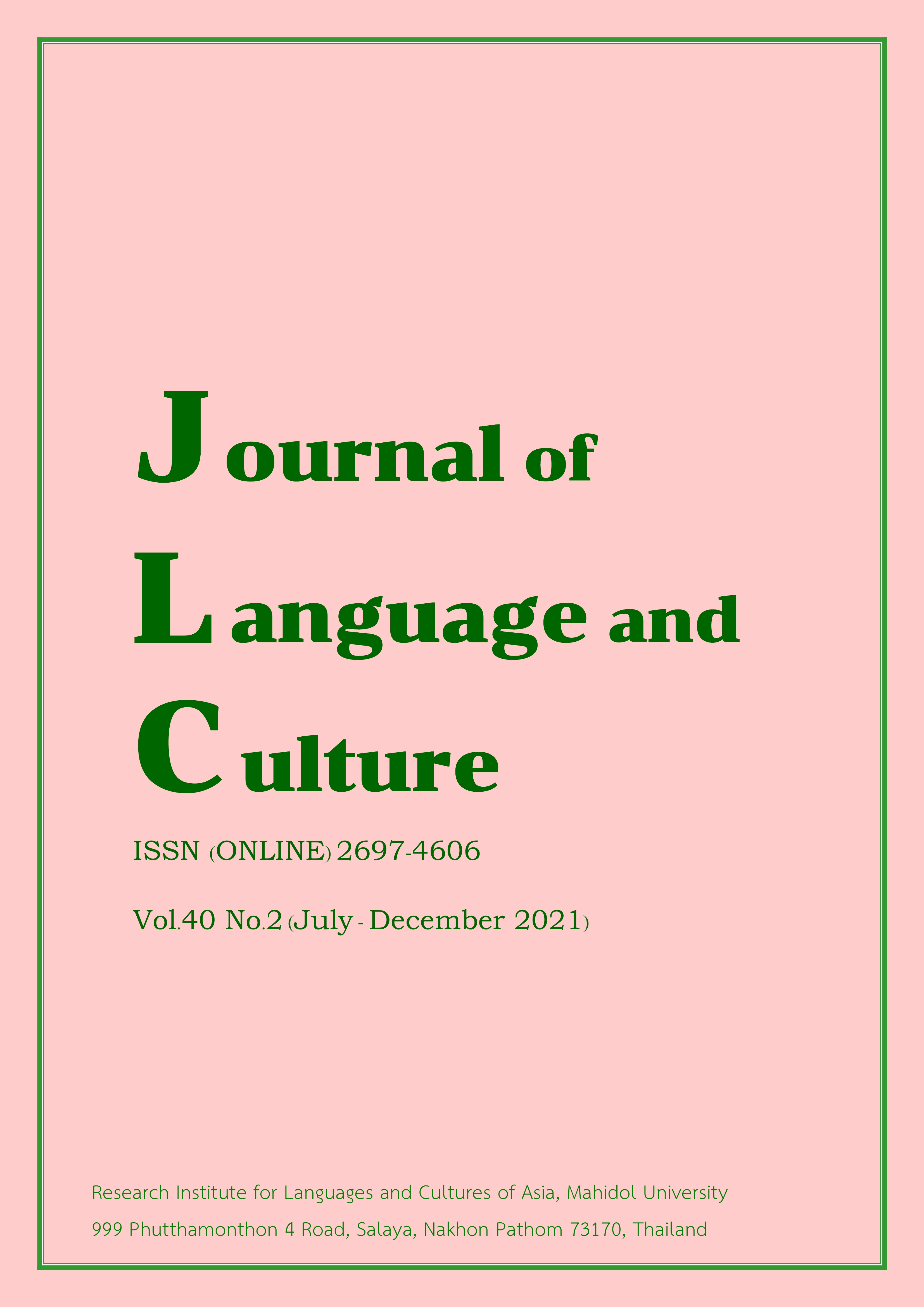The discursiveness and the critique of social wrongs related to Thai ways in 2013 and 2016 “S.E.A. Write Award” poetry
Main Article Content
Abstract
This research article aims to investigate the discursiveness of the two “S.E.A Write Award” poetry books namely ‘The Fifth Heart’s Chamber’ in 2013 by Angkarn Chanthathip, and “The City of Outsiders” in 2016 by Phalang Phiangphirun, and to critique the presentations in the current issue providing that the social structure and system have developed rapidly. Social wrongs which are happening instantly in the texts are radically influential. The approach to analyzing the social wrongs existing in the poetry is to use “Critical Discourse Analysis: CDA”. The research results were as follows: 1) The attestation of the discursiveness in both texts is in accordance with the criteria used, namely Faiclough and Wodak’s and van Dijk’s proofs. Some poems are discursive in line with all criteria, there are not any poems, however, all discursive poems must be at least verified by a half of each criterion. Additionally, there is also a spectrum of discursiveness. This is because the factors affecting discursiveness are created by the level of individualism — that is, the poet who construed the contents, — and by the collectivism which is elaborated by the overall picture of society members. 2) As having related to the maintenance of equality and the struggle in social righteousness, the two books of poetry express the discourses of hierarchy and peace with regard to the Fairclough’s (2010; 1989) critical discourse analysis. 3) The creative language in the form of poetry, which is one of the channels for production, reproduces discourses for use in Thai society. All findings are recorded through the use of poetry language, reflecting phenomena related to members of the same community.
Article Details
The articles featured in the Journal of Language and Culture (JLC) constitute academic works representing the viewpoints of the respective author(s). It is crucial to note that these opinions do not necessarily reflect those of the Editorial Board.
All articles published in JLC are released under the Creative Commons Attribution 4.0 International License (CC BY 4.0). This license grants permission for unrestricted use, distribution, and reproduction in any medium, provided proper credit is given to the original author(s) and the source.


